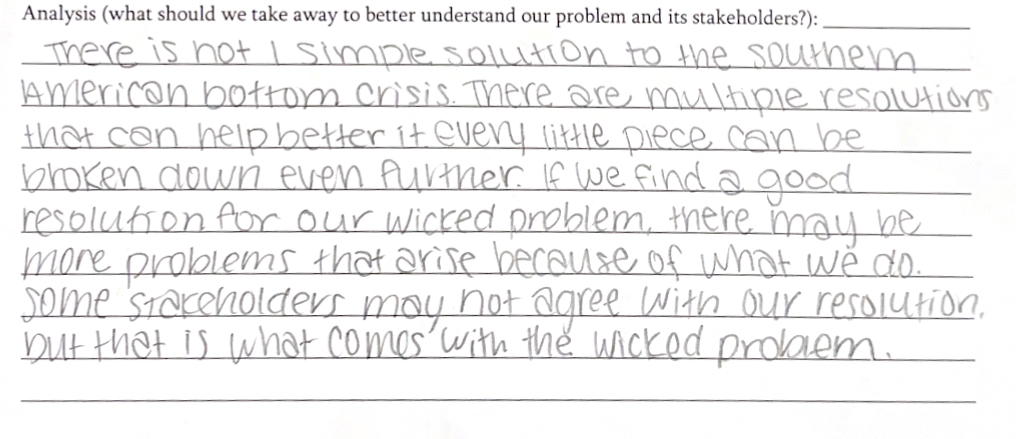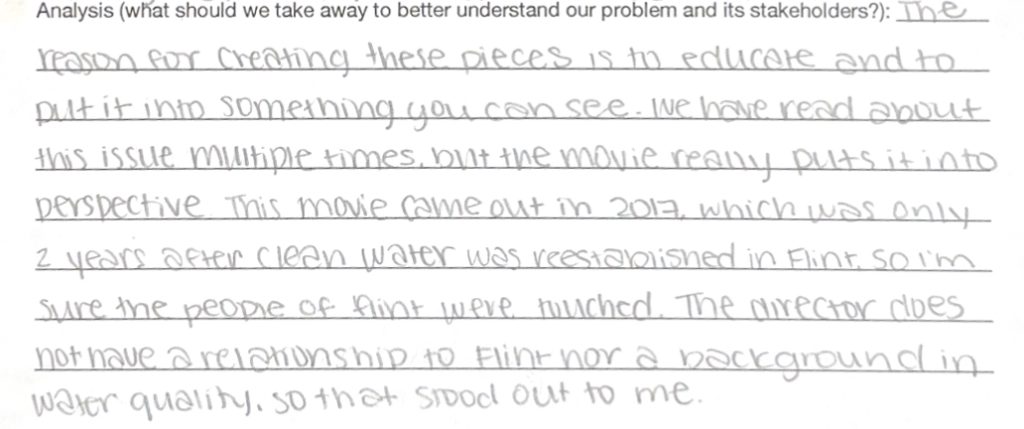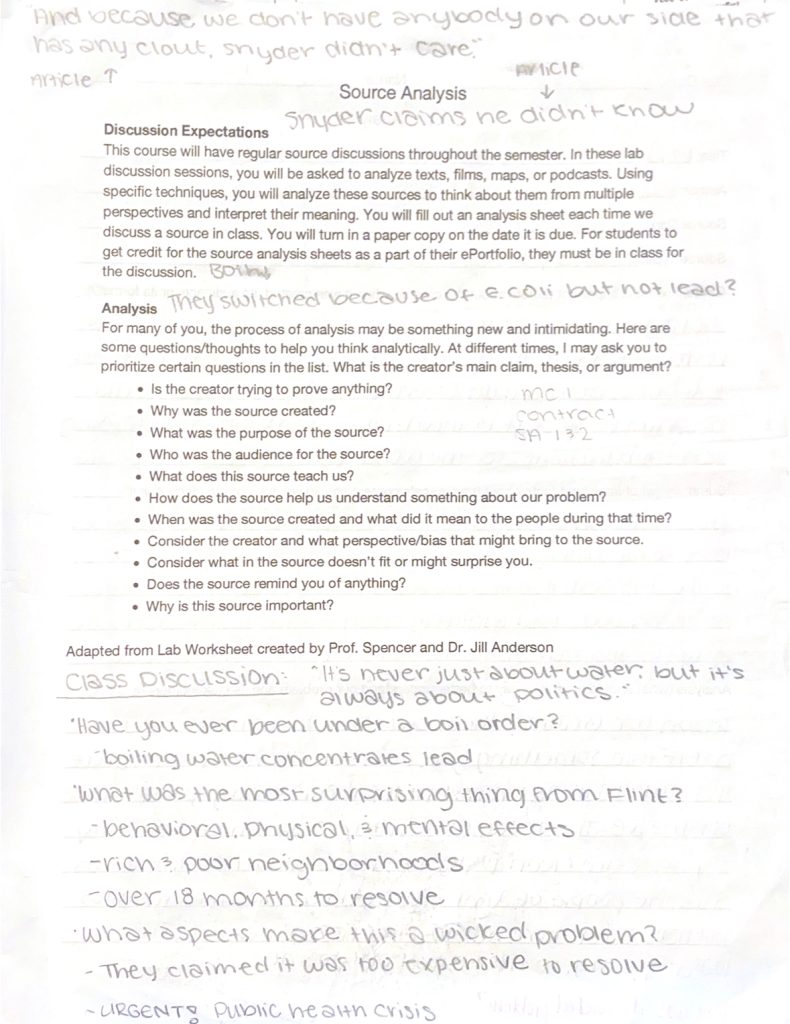Introduction
I have thoroughly enjoyed college thus far, but I think I have studied more in the first 2 months of college than I have throughout my entire high school career. I was nervous at first, but now I see that once I established a routine and changed my mindset, college is great.
I have learned a plethora of useful skills through CODES, varying from data analysis, to composition, to even social skills. In this section of CODES, I have been on top of most things. I enjoy the detailed class discussions we have, especially because everyone has a different perspective to add. On the flip side, some of the sources we analyze are difficult to comprehend. I wasn’t particularly interested in water quality, but I enjoyed learning about Flint and Dr. Martinez’s work on the Rio Grande.
I believe I have excelled in class discussions, but have fell short when it comes to time management and my writing. I plan to incorporate personal Miroboards and annotations throughout the semester while also composing more detailed written pieces.
I am excited and proud to say I believe I have met these goals for this semester. I am proud of my writing and really thinking these problems through. As this semester comes to a close, I am ready for a break, but also looking forward to making progress with JJK and Heartlands in the coming semesters.
Ethical Reasoning (20%)
Recognizes multilayered ethical issues and the cross-relationships among them.
“Instead of just focusing on the problem at hand, I will dive deeper into the ethics with more thorough research.”
In my contract, I said that I would include my MCs. Although I’ve seen progress in my writing and assessing ethical issues, I believe my source analyses are better examples. First is a piece of my first source analysis and below it is one of my more recent ones. It is more noticeable that I made progress on this goal because I have analyzed different wicked problems and their stakeholders 4 times now.

Above is my first source analysis. As you can see, I am fairly vague when addressing the stakeholders and the wicked problem. Now, lets look at my most recent stakeholder analysis:

Here you can see that I address the audience, time period, and purpose of the article. The stakeholders for this movie and article were the people in Flint. I analyzed this source with more detail and more structured to the stakeholders.
Critical and Creative Thinking (30%)
Takes risks in approaches to learning to create new knowledge.
“Wicked problems are multilayered, so taking risks will be critical to assess all sides of the problem.”
I was unable to be present for the showing of Flint, but I took on the responsibility to watch it in my very limited free time. This week was my week to present our source analysis. I collaborated with Jasmine to develop compelling questions. This shows that I am a hardworking student willing to take these risks in exchange for success in the class.
My section of our final project is on our next steps. I was stuck for a long time trying to figure out what the best move was. Critical and creative thinking was key in composing my part, and I wasn’t afraid to seek help like I usually would. Below is a conversation I had with Dr. Martinez, as she was trying to help me think deeper.

This helped me think harder and eventually finish my part of our final project. Finally, below is a paragraph pulled from the final project. This paragraph sums up what our group is looking to accomplish in the following semesters.

My writing has grown in complexity, and my passion for these issues has as well. In the beginning of the semester I was having a hard time defining what a wicked problem was, and here I am at the end excited to finally take steps to improve education in water infrastructure.
Oral Communication (30%)
Uses clear organizational patterns and is skillful at presenting content cohesively.
“I will take a more detailed approach to presentations, create in depth outlines, good questions, and focus on word clutter.”
When deciding what to touch on for my presentation of source analysis #3, I wrote down notes while watching the movie and reading the article:

Presenting to our community partners was a good example of how I have improved speaking publicly. My research group and I came up with a rough outline of what we wanted to say to JJK and Heartlands.

Here is an excerpt from the shared doc, of my piece. I was able to expand on these points and any questions our guests had.
After reading this to them, they had some questions and all of us were able to add more onto what we had originally said. We all cooperated well to verbally explain our resolution to their wicked problem. In the beginning of the semester, I would have just said, “eh, whatever I’ll just wing it.” but now that we are deeper and more invested in the issue, we all wanted to show our passion.
Problem Solving (10%)
Implements solutions to address multiple contextual factors.
“It is hard for me to think outside of the box. I will jot notes and participate in discussions. I will focus more on what other people think and really incorporate others’ perspectives.”
Here is 1 Miroboad that I am proud of creating during a breakout session. This shows that I was not only engaged in class, but actively problem solving.

In high school, teachers would often post notes online or hand out guided notes. College is much different. You are responsible for your own learning. Whether or not you choose to take notes is up to you. Miroboards are a great example of brainstorming and expanding on the class discussion.
Written Communication (10%)
Uses language to skillfully communicate with clarity and fluency.
“I want to decrease verbal clutter and focus on using less passive voice. I want to get better at providing sufficient research with valid points.”
I have set myself up to achieve this goal by incorporating edits from Dr. Martinez on my MC #1:

Above is an excerpt of the original draft for my MC #1.
Below you will see just one paragraph of many that was revised to be much more impactful.
